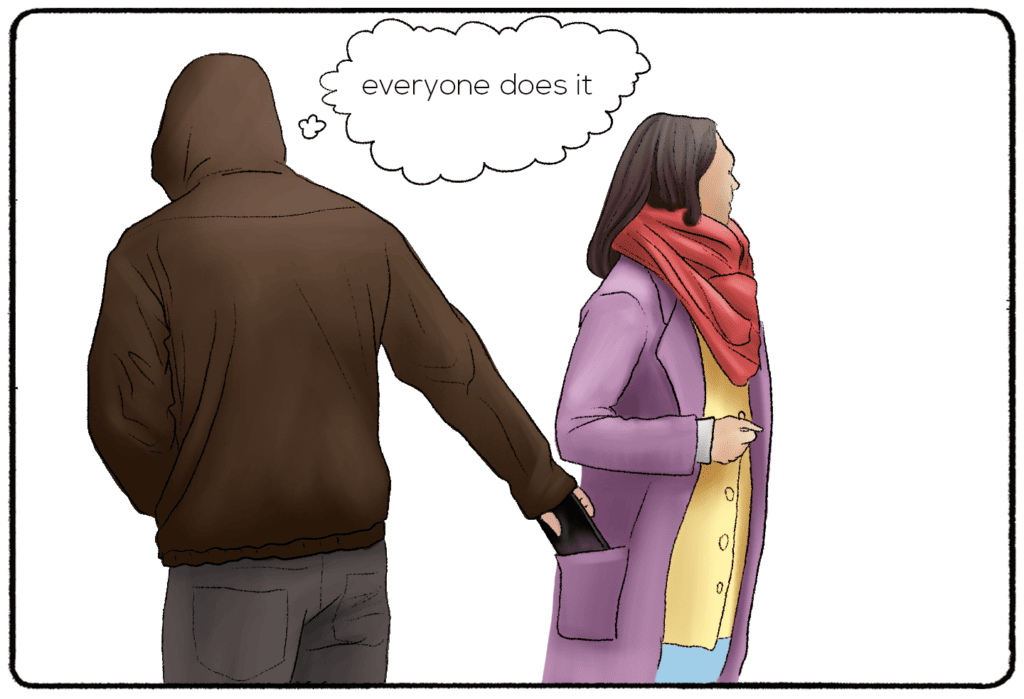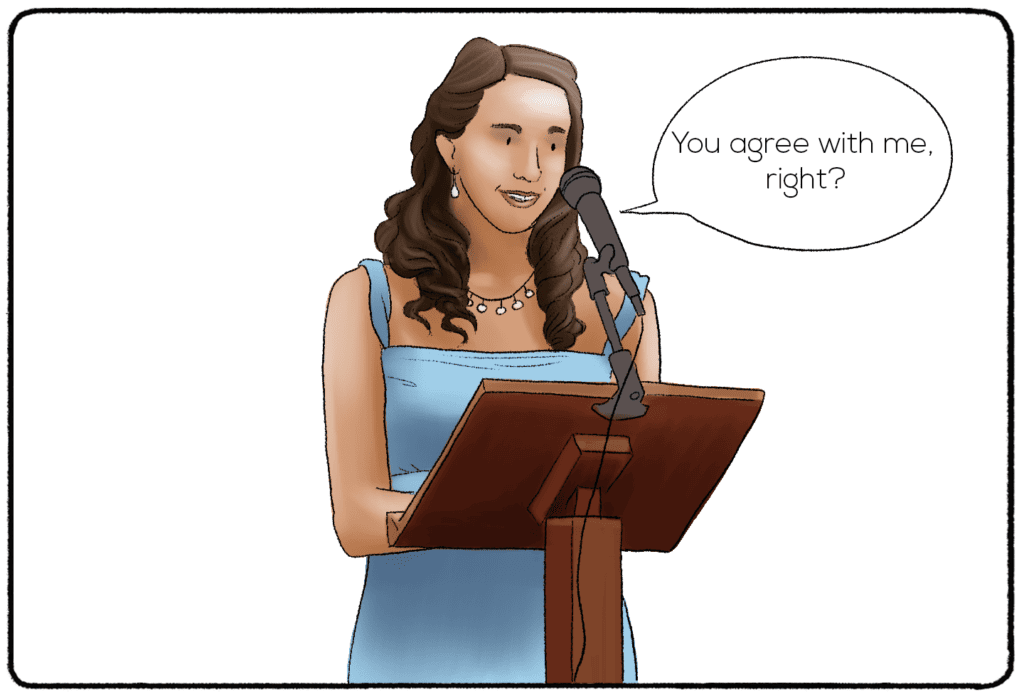Have you ever heard the phrase, “Common sense is not so common?” It’s a reminder that sometimes, everyone doesn’t think the same way as you. That even though one solution seems to be the obvious answer, people won’t see it or acknowledge it as the right way to go.
This can be extremely frustrating, but it shouldn’t be so surprising. A cognitive bias has been telling us that what we think is “common sense” is “common.” In reality, the false consensus effect (also known as the false consensus bias) is covering up for the fact that people have very different perspectives, values, and ideas. We just think that everyone should be on the same page because it’s the page that we’re on.
What Is The Definition of the False Consensus Effect?
The False Consensus Effect is a tendency to overestimate how much people agree with us. It can also skew the way we predict how people make decisions or judge a certain situation. This cognitive bias tells us that our “sense” is common sense and that differing opinions are “abnormal.”
The False Consensus Effect influences the way we make predictions and decisions every single day. When we are faced with the reality of another person’s differing opinion, other tendencies or feelings may start to skew how we see the situation. Take the idea of cognitive dissonance - when we are faced with two different ideas or opposing values, we start to feel uncomfortable and push the opposition away. It’s not always easy to recognize that people have different values and perspectives, so we may push their opinions away or write off their decisions as “ill-informed” or simply “wrong.”
It’s important to stay open-minded when confronted with ideas that challenge your values or change the way you view the world.
Who Discovered the False Consensus Effect?
The term “false consensus effect” was first coined in the 1970s by Lee Ross. Ross is a Stanford professor and social psychologist studying the way that people make judgments and decisions. His experiments showed that people may have a tendency to believe that other people think like them.
Studies on the False Consensus Effect
Here’s how the studies went. Researchers would give participants a scenario to read and then two options for how to deal with the scenario. These scenarios ranged from how to deal with speeding tickets to where to put government funding. Then, the researchers asked the participants a series of questions.
- What would the participant choose to do?
- What would most people do?
- What kind of people would choose both options?
The results showed that no matter what option the participant chose, they also believed that most people would go along with them. They would describe people who choose the opposite with negative and sometimes extreme descriptions.
Ross and his team conducted a few more studies like this to show that people tend to have a skewed idea of how other people behave. This is caused by the False Consensus Effect.

Examples of the False Consensus Effect
Staying aware of the False Consensus Effect can help you communicate in groups or come to a more amicable solution to problems.
Group Projects
Let’s say you’re in a group project and you’re in charge of making a decision about where to go with the project. You don’t consult any of the group members - surely they will believe that your decision is the right way to go and won’t mind you taking initiative. You might be in for a rude awakening when the other group members disagree with your decision or even judge you for moving forward in that direction.
Casual Conversation
The False Consensus Effect may also just lead to you putting your foot in your mouth or getting into a heated argument. Let’s say you’re at a party with a bunch of new people who seem rather agreeable and nice. You make a snide comment about a political candidate or a hot-button topic, only to find out that you are the only person in the group who thinks that way. Now you’re in an awkward position because you didn’t think you’d have to explain your comment or get into a debate with anyone.

Social Media and The False Consensus Effect
Staying aware of the False Consensus Effect is especially important on social media. Facebook’s algorithm is more likely to put agreeable content on your newsfeed - after all, you’re more likely to “like” or share content that you agree with. But this algorithm can fuel the False Consensus Effect and fuel the idea that the world agrees with how we see the world. Your newsfeed may be full of anti-gun news stories and you might believe that most people are on the same page with you about gun control. Or you may see a majority of your Facebook friends sharing loving articles around Pride Month and believe that the world has progressed very far when it comes to LGBT rights.
Combining the False Consensus Effect with other biases, such as the confirmation bias, may shape your view of the world. Opposition to this view doesn’t just hit hard because you wind up talking to people who disagree with you - it can cause you to isolate those people and write them off due to their opposing beliefs because they don't fit into your view of the world.
"Cheaters Think Everyone Cheats"
This phrase was used as an example of False Consensus bias on Reddit. This post goes further into detail about where you can find information on this bias and how people see it in their everyday lives.
How to Avoid False Consensus Effect
It’s fine to make assumptions on ideas that you can almost guarantee to be true - until you are proven wrong. The False Consensus Effect often lures people into thinking that they know what is going on in the minds of others and in the world at large. The best way to avoid an awkward situation is to communicate with the people around you. Does everything think that your idea is a good idea? What would other people suggest, and why? These simple questions can be all it takes to break down your assumptions and put you on the path to a more agreeable solution.
